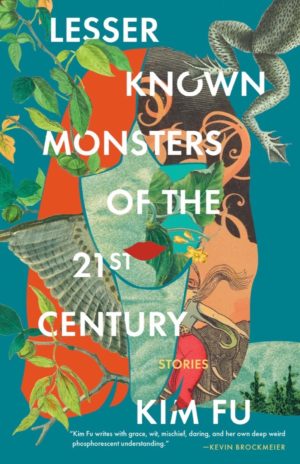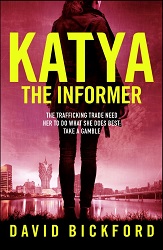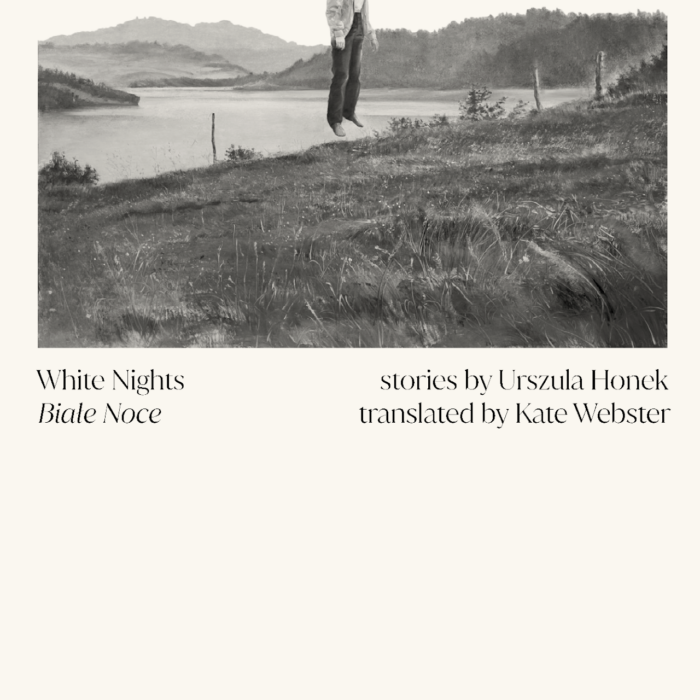You have no items in your cart. Want to get some nice things?
Go shopping
At face value, the lesser known monsters of Kim Fu’s latest work seem to be the typical fare of horror, fantasy, or science fiction: a doll possessed by the ghost of a dead child; a girl who grows a set of wings and decides to test them out by jumping from a cliff; a futuristic box that can speed up time, allowing us to experience the complete life- and death-cycle of, say, a frog, or a human being. Indeed, there is nothing earth-shatteringly original about these concepts, even though the author does often use them to great atmospheric effect. But what lifts this collection of short stories out of the realm of imitation is the way in which Fu attempts to undercut the genre tropes she employs, guiding her reader to the underside of her monsters, where we find her motives to be much more literary and prescient.
That said, the attempts are not always successful, and there are a handful of stories here that seem written by a different, much less talented, writer. Perhaps such inconsistency is an indication that Fu, still very young to be on her third book of prose, is yet to find the full power of her voice.
Readers of For Today I am a Boy and The Lost Girls of Camp Forevermore will find here some familiar themes around identity and growing up. In the second story of the collection, “Liddy, First to Fly,” we are presented with a strange evocation of what it means to flutter on the cusp of adulthood. The wings that begin growing out of Liddy’s ankles are an obvious metaphor, but what the imagery lacks in subtlety, it makes up for in the tension it offers the denouement of the story. When Liddy and her friends decide to test out whether the wings actually work, recklessly choosing a cliff-top above the sea to do so, the story begins to question how threatening the prospect of adulthood might be to the innocence of youth. (Interesting side note, this early tale contains the standout line of the collection, when reflecting on the way in which the girls accept so unquestioningly the sudden growth of the wings: “The realm of pretend had only just closed its doors to us, and light still leaked through around the edges.”)
The moniker of most successful story here, however, goes to “The Doll.” The narrative is, seemingly, a straightforward horror (though very subtly done, which is perhaps its greatest strength), complete with all the expected hallmarks, such as a dog that apparently intuits the evil spirit contained in the child’s doll by barking and whining at it. But it is Fu’s deliberate avoidance of a conclusive ending that makes us question how accurate the retelling of the events have been. Told from the perspective of one of the children, the reader is left to wonder to what extent such frightening events could have been the product of collective imagination. How far has the children’s sense of pretend, of making up their own games and stories, impacted on the remembered events?
It seems remarkable that a collection of stories, many of them utilising a similar approach (taking a genre trope/monster and twisting it to reveal an underlining truth about the human condition) can contain such widely convergent peaks and troughs. With all of the breathtaking success of her previous ventures, we might be forgiven for expecting more from her third book of prose.
The Kafkaesque “June Bugs” is one such piece that weighs the collection down. The author’s attempt at portraying an emotionally abusive relationship comes off as the cliched ramblings of a well-intentioned amateur. The dialogue is stunted, the evolution and breakdown of Martha and Neil’s relationship presented in tediously predictable, even cringeworthy depth, and the portions following Martha in her new home as she attempts to rebuild her life – where the bugs begin crawling down the walls and into her bed at night as she sleeps – seems overdone and desperate for attention.
If we were to learn that this story was one of the author’s early attempts at fiction, during the first disorienting weeks of an MA degree, perhaps, it would not come as a great surprise. However, it is certainly a mark of Kim Fu’s underlying sensitivity to the material that even a story such as this can harbour some understated descriptive gems that would not be out of place in a masterpiece. The most evident of these is the way in which the psychologically vulnerable Neil is described as “a raw nerve in the wind.”
The fact that there are a good handful of stories in the category of “June Bugs” – really low-grade fare for the kind of readership Fu should be courting with her talents – should not detract from those pieces that really do work. For, ultimately, Lesser Known Monsters achieves what all good collections should in leaving its readers with a series of unshakeably haunting images. We are, for instance, left reeling by the sight of the husband and wife of some futuristic time who repeatedly murder and regenerate one another, apparently exacting their petty revenge over mundane frustrations, though perhaps there is more to it than that. Then there is the narrator whose real life begins to spill through the gaps in her fantasies, fantasies to which she desperately tries to cling.
One thing that is consistent throughout all of the stories, the successful and the not so, are these thematic balancing acts between childhood and adulthood, the real and the imaginary, the miraculous and the mundane. Indeed, the very form each of the stories takes embodies these concerns by straddling the connective tissue between realism and fantasy. Taken all together, these works are a single, unified piece of art and display an author with a descriptive lightness of touch and an incredible sense of inventiveness. Often (although we might wish it was more than often) she leaves us in thrall to her very real imaginary world.
Lesser Known Monsters of the 21st Century
By Kim Fu
Tin House, 220 pages
About Andrew Cochrane
Andy is a writer based in Southampton, where he lives with his wife and two daughters. He has an MA in Creative Writing, and has previous publications at The Fiction Desk, Litro, Words for the Wild and Postcard Shorts, among others. He is currently seeking an agent for his debut novel.




